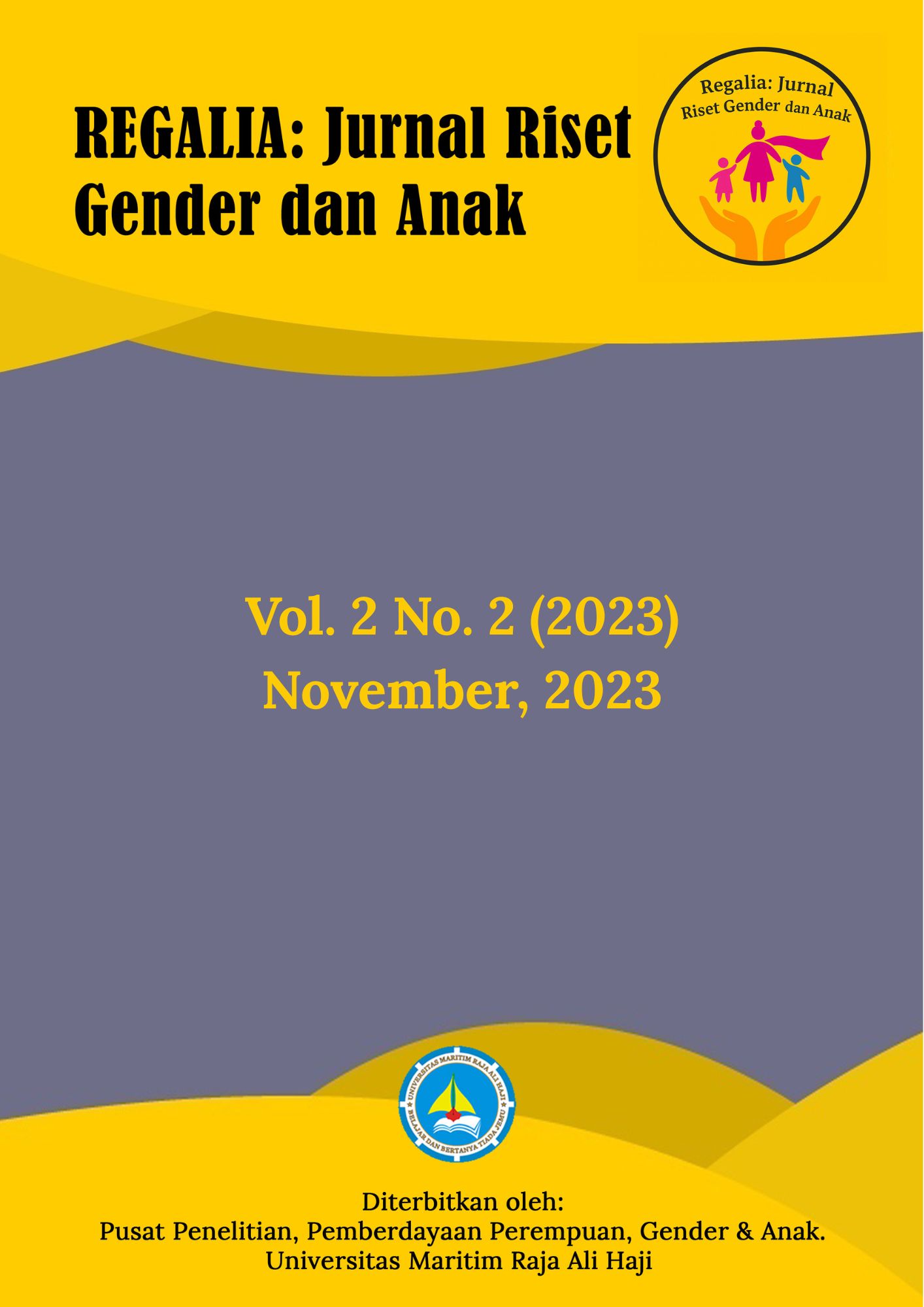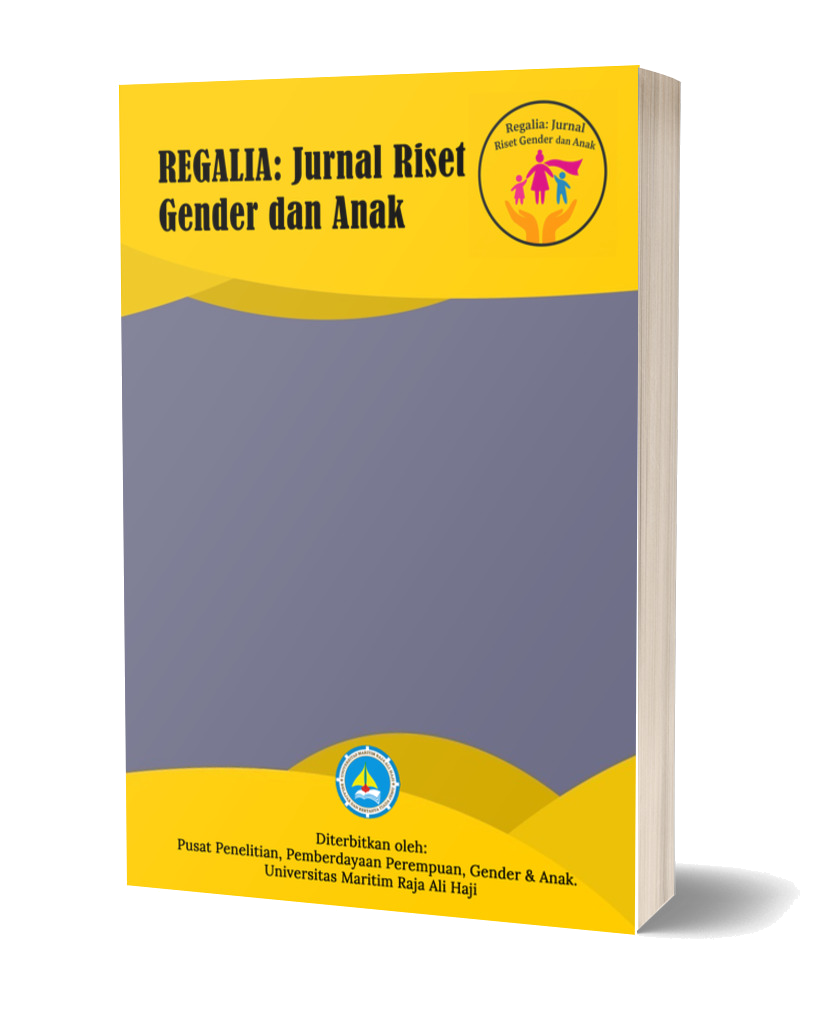Konsep Pemberdayaan: Penyuluhan dan Pemberdayaan Petani Perempuan dalam Konteks Pertanian berbasis Gender
DOI:
https://doi.org/10.31629/jga.v2i2.6386Keywords:
Penyuluhan Pertanian; Pemberdayaan Masyarakat; Petani Perempuan; Pertanian BerkelanjutanAbstract
Pemberdayaan petani perempuan adalah kunci untuk meningkatkan keberlanjutan dan ketahanan pangan dalam masyarakat agraris modern. Artikel ini mengkaji secara teoritis termasuk landasan teori yang mendasari pemberdayaan perempuan petani, dengan fokus pada kesetaraan gender; pembangunan berbasis masyarakat; dan pertanian berkelanjutan. Melalui kajian mendalam, artikel ini membahas penyuluhan pertanian yang berperan penting dalam pemberdayaan perempuan petani. Penelitian ini mengeksplorasi pemberdayaan perempuan petani yang melibatkan serangkaian langkah dan strategi untuk meningkatkan pengetahuan, keterampilan, akses dan kepercayaan diri mereka dalam mengelola usaha pertanian dan meningkatkan kesejahteraan keluarga dan komunitas mereka. Beberapa intervensi utama untuk memberdayakan perempuan petani adalah melalui pendidikan dan pelatihan; akses terhadap sumber daya; peningkatan pasar dan nilai tambah; aspek kesejahteraan sosial dan kesehatan; aspek kesadaran lingkungan; pemberdayaan teknologi; dan advokasi dan kesetaraan. Artikel ini memaparkan metode teoritis yang memberikan pandangan mendalam mengenai pentingnya inklusi dan kesetaraan gender dalam transformasi sektor pertanian. Implikasi kebijakan dan arah penelitian di masa depan memberikan wawasan bagi pembuat kebijakan, praktisi, dan peneliti yang tertarik untuk mendukung pertanian berkelanjutan dan inklusif melalui pemberdayaan perempuan petani. Dengan memperkuat peran perempuan petani, kita dapat mencapai tujuan nasional yaitu ketahanan pangan yang berkelanjutan dan adil untuk semua.
Downloads
References
Alsop, R., & Heinsohn, N. (Eds.). (2005). Measuring Empowerment: Cross-Disciplinary Perspectives. Washington, DC: The World Bank.
Bahri, S. (2018). Metodologi Penelitian Bisnis. Yogyakarta: Penerbit Andi
Bogdan, R. C., dan Biklen, S. (2007). Qualitative Research for Education: An Introduction to Theories and Methods, 5th Edition. Pearson.
Effendi, R., Salsabila, H., dan Malik, A. (2018) Pemahaman tentang Lingkungan Berkelanjutan. MODUL, 18 (2), [http://ejournal.undip.ac.id/index.php/modul]
Gavara, C. M. and Zarco, A. I. J. (2019) Sustainable Fashion, Palgrave Studies of Entrepreneurship in Africa, https://doi.org/10.1007/978-3-319-91265-3_3
Herdiyansah, H. 2010. Metode Penelitian Kualitatif untuk Ilmu-ilmu Sosial. Jakarta: Salemba Humanika..
Moleong, M.A., Lexy J. (2017). Metodologi Penelitian Kualitatif. Edisi Revisi. Cetakan 36. Bandung: PT. Remaja Rosdakarya.
Peraturan Menteri Pemberdayaan Perempuan dan Perlindungan Anak Nomor 13 Tahun 2021
Pretty, J. (2008). Agricultural Sustainability: Concepts, Principles, and Evidence. Philosophical Transactions of the Royal Society B: Biological Sciences, 363(1491), 447-465.
Sipayung, T. (2023) Konsep dan Definisi Sustainable. Internet. Diakses pada Oktober 31, 2023. [https://palmoilina.asia/sawit-hub/konsep-dan-definisi-sustainable/]
Sumartan et al., (2023). Meningkatkan Kesejahteraan Petani Melalui Penyuluhan Pertanian Berbasis Agribisnis di Kabupaten Sidenreng Rappang. Universitas Negeri Gorontalo: Jurnal Pengabdian Masyarakat Terintegrasi.
Tampubolon, J. (2006). Pemberdayaan Masyarakat Melalui Pendekatan Kelompok: Kasus Pemberdayaan Masyarakat Miskin melalui Pendekatan Kelompok Usaha Bersama (KUBE). Disertasi. Ilmu Penyuluhan Pembangunan, Bogor: Program Pascasarjana, IPB.
World Economic Forum. (2021). Global Gender Gap Report 2021
Zed, M. (2008). Metode Peneletian Kepustakaan. Jakarta: Yayasan Obor.
Downloads
Published
Issue
Section
License
Copyright (c) 2023 sumartan

This work is licensed under a Creative Commons Attribution-ShareAlike 4.0 International License.
Anda bebas untuk:
- Berbagi — menyalin dan mendistribusikan ulang materi dalam media atau format apa pun untuk tujuan apa pun, bahkan secara komersial.
- Mengadaptasi — mencampur, mengubah, dan membuat materi untuk tujuan apa pun, bahkan secara komersial.
- Pemberi lisensi tidak dapat mencabut kebebasan ini selama Anda mengikuti ketentuan lisensi.
Berdasarkan ketentuan berikut:
- Atribusi — Anda harus memberikan penghargaan yang sesuai, menyediakan tautan ke lisensi, dan menunjukkan jika ada perubahan yang dilakukan. Anda dapat melakukannya dengan cara yang wajar, tetapi tidak dengan cara yang menunjukkan bahwa pemberi lisensi mendukung Anda atau penggunaan Anda.
- BerbagiSerupa — Jika Anda mencampur, mengubah, atau membuat materi, Anda harus mendistribusikan kontribusi Anda di bawah lisensi yang sama dengan aslinya.
- Tidak ada batasan tambahan — Anda tidak boleh menerapkan ketentuan hukum atau tindakan teknologi yang secara hukum membatasi orang lain untuk melakukan apa pun yang diizinkan oleh lisensi.











